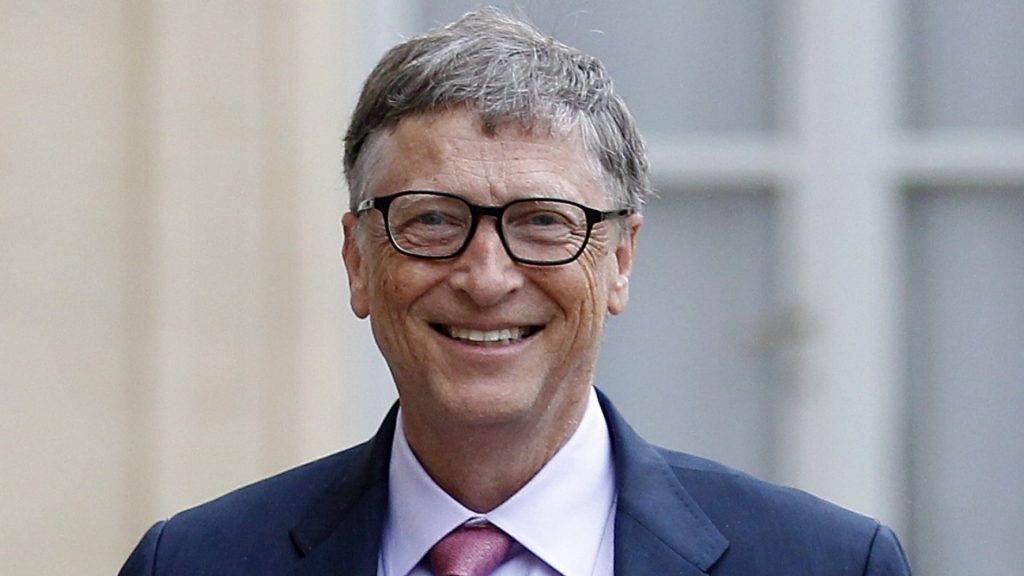
In a recent blog, we reported that Bill Gates invested in a company, C16 Biosciences Inc.,that plans to produce palm oil using fermentation process. The company aims to reduce the need to reduce the impact on clearing tropical forests to plant oil palms.
It is reported by The Times, London on June 24th, 2020, that Bill Gates has made an investment in a new venture that aims to solve another global problem. He has put his money in a start-up hopes to develop artificial breast milk to reduce the carbon footprint of mothers who choose not to breastfeed.
Estimates suggest that at least 10 per cent of the world dairy market, a major source of greenhouse gases, is used to produce baby formula milk. The company, Biomilq, an American company, has provided a proof of concept top show the feasibility of its plan. It hopes to produce breast milk artificially from cultured human mammary epithelial cells in about five years (mammary epithelial cells are cells in the thin layer of of tissue that coat and lines the surface of the milk ducts in the breast)
This would be an alternative to formula milk. The firm has already shown that the process can produce lactose and casein, to components of human breast milk. Biomilq is being assisted by an investment of US$3.5 million, mostly from a fund set up by Bill Gates. The idea of growing breast milk in a laboratory is likely to be less alien to the public after the popularity of lab-grown meat.
Biomilq was founded by Michelle Egger and Leila Strickland. Ms Egger was a food scientist, while Ms Strickland was a cell biologist.
Breast feeding is widely touted for its health benefits for babies but many mothers do not have that option. Formula milk is the normal alternative for these mothers. This can cause problems, however, for some children’s digestive systems because it relies on cow’s milk or soy rather than human proteins. Biomilq aims to create something that is as digestible as human breast milk but have a smaller environmental impact than dairy.
The investment by Bill Gates into Biomilq was made through Breakthrough Energy Ventures, set up to focus on climate change.
About Breakthrough Energy Ventures
According to Quartz, the digital business news website (www.qz.com, noted by its senior reporter, Ashkat Rathi on August 26, 2019, Breakthrough Energy Ventures (BEV) is a US$1 billion fund with the aims to fund those technologies that fight climate change.
To be eligible for BEV, a start-up needs to showcase a scientifically sound technology that has the potential to reduce annual global greenhouse-gas emission by at least 500 million MT. Global emissions currently measure about 40 billion MT per year.
Start-up that have these technologies usually struggle to scale, either because the engineering challenge is too big or the business environment to support the companies doesn’t exist. These companies need patient capital. BEV is fine if its investments don’t provide a return for up to 20 years. In September, 2018, Quartz revealed the first nine investments made by BEV. It included three start-ups building energy-storage technologies, two using microbes to cut emissions in agriculture products, and one each working on low-carbon cement, cheap geothermal, nuclear fusion, and a solar-powered technology to collect water from the air. Eight were based in the US and one in Canada.
In the 12 months since the last tranche, of investments, BEV has found 10 more companies that it thinks could help the world cut emissions drastically.
- Arnergy: A Nigerian start-up that deploys solar-power solutions for small businesses to provide reliable electricity.
- Baseload Capital: A specialized investment entity based in Sweden that funds the deployment of technology developed by start-up Climeon, which uses waste heat to generate power.
- Boston Metal: A company based in Boston, US, that uses electricity, instead of coke, to convert iron ore into iron.
- Kobold Metals: A company based in San Francisco, US, that uses artificial intelligence to accelerate the search from ethical sources of the metals, like Cobalt, needed to make lithium-ion batteries.
- Max: A Nigerian ride-sharing app that deploys two-wheeled motorcycles to move people in cities more safely. BEV’s money will help lower emissions by pushing for the electrician of Max’s vehicle fleet.
- Malta: A Boston-based start-up that has developed a way to store renewable electricity renewable energy in the form of heat and cold.
- Motif: A Boston-based start-up that develops low-carbon alternatives for everyday food ingredients.
- Sierra Energy: A start-up spun out of University of California, Davis, US, that uses oxygen and steam to break down waste into gases, which can be used to make synthetic fuel. The process leaves behind solid sorb metals that can be safely discarded or re-used
- SparkMeter: A US-based start-up with a Kenyan office that develops smart meters to grow reliable access to electricity in poor countries.
- Sustainable Bioproducts: A Chicago-based start-up whose fermentation technology creates low-carbon proteins that can be used as nutrients for foods.
Breakthrough Energy Venture is the investment arm of Breakthrough Venture, an entity established in 2015 by Bill Gates and a coalition of private investors concerned about the impact of accelerating climate change (www.b-t.energy). The board member s and investors include prominent individuals such as follows:
- Mukesh Ambani: Investor
- John Arnold: Board member
- Jeff Bezos: Investor
- HRH Prince Alwaleed Talal: Investor
- Michael Bloomberg: Investor
- Richard Branson: Investor
- Ray Dalio: Investor
- John Doerr: Board member
- Bill Gates: Chair of the Board
- Reid Hoffman: Investor
- Chris Hohn: Investor
- Vinod Khosla: Board member
- Jack Ma: Board member
- Dustin Maskovitz and Cari Tuna: Investor
- Patrice Motsepe: Investor
- Xavier Niel: Investor
- Hasso Palttner: Investor
- Julian Robertson: Investor
- David Rubenstein: Investor
- Nat Simons and Laura Baxter- Simons: Investor
- Masayoshi Son: Investor
- Ms Zhang Xin and Mr Pan Shiyi: Investor